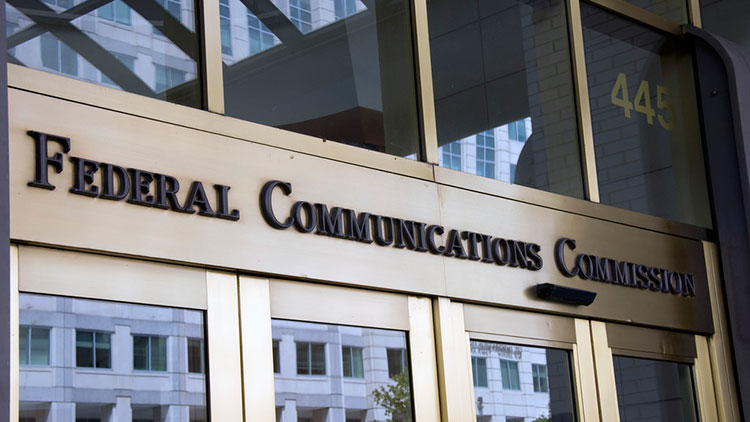FCC Pledges Hard Data on Enforcement Bureau Performance

The smarter way to stay on top of broadcasting and cable industry. Sign up below
You are now subscribed
Your newsletter sign-up was successful
The FCC's Enforcement Bureau has promised to come up with goals and performance metrics for its enforcement practices.
That is the word from new Enforcement Bureau Chief Rosemary Harold in response to a Government Accountability Report released Sept. 14 and requested by Republican leadership in the House Energy & Commerce Committee.
FCC officials told GAO that back in 2009, the FCC decided that narrative examples, rather than quantifiable goals, were the best way to report on the enforcement program. But that is now going to change.
Related: Lifeline Service Gets Hammered in Senate Hearing
"We accept GAO's recommendations and will develop and publish performance goals and measures for FCC enforcement practices in accordance with the Government Performance and Results Act Modernization Act of 2010," said Harold in a letter to GAO's Mark Goldstein in response to the report (GAO always gives the subject of its reports a chance to respond, which it includes when releasing the report).
The audit was conducted from June 2016 to September 2017, so it straddled about evenly the tenures of Democratic Chairman Tom Wheeler and Republican Ajit Pai.
The report concluded that the FCC, over the past five years, had improved the efficiency of the program. Those improvements included a new consumer complaint portal, a new enforcement data system, updating its guidance, and reorganizing its field offices.
Related: Pai Tees Up Fresh Look at Competition
But the report said that it was difficult to determine how effective those were because the FCC lacked clear "performance indicators, targets, and timeframes" that would allow the FCC—and GAO, for that matter—to assess the outcomes of its enforcement efforts.
GAO also said that without those metrics, it was hard for Congress—which sought the report—to properly oversee the program and for the public and stakeholders to have the needed transparency into the process and the FCC's enforcement priorities.
The GAO's action items, which Harold promised to act on, are to establish those quantifiable goals and measures, to publish the results to demonstrate proof of performance, to make its enforcement priorities clear, and to come up with a strategy for communicating that process to the public and stakeholders.
But Harold also said that strategy would continue to be guided by legitimate concerns about confidentiality, something the GAO recognized as well.
"Consistent with applicable law, we must exercise caution about disclosing information that might jeopardize an ongoing investigation, or unfairly raise concerns about a target's activities," she said.
The report included some anecdotal complaints from stakeholders, including that fines had been levied without any clear violation, that some folks had acted quickly to correct and report violations but got significant penalties anyway, and that some stakeholders had lost the incentive to self-report because they did not think the bureau would treat them fairly if they did.
Harold, in the FCC response to the report, said that it was difficult to address those concerns without more information about the specific claims, so the FCC could neither dispute nor concur with them. But she did point out the parties can always challenge a fine at the FCC or appeal it in court.
For the report, GAO interviewed FCC officials and 22 stakeholders "from public and private organizations."
GAO said one reason for the report was that "some stakeholders have raised questions about the openness, transparency, and fairness of FCC’s enforcement processes.
Those included AT&T.
In a blog post last February, AT&T senior VP of federal regulatory Joan Marsh laid out the case for why the bureau needs changing. AT&T has some experiences with the Enforcement Bureau it found wanting.
Current FCC Chairman Ajit Pai has long complained about the fairness of Enforcement Bureau actions under his predecessor. In 2015, he told the House Communications Subcommittee that the bureau had "gone off the rails," following that up in a speech to communications lawyers with a lengthy criticism of the bureau's actions, citing "headline-grabbing fines" (he specifically cited the AT&T fine among others).
He also said the enforcement process had the wrong priorities and was less productive.
Pai also complained about the lack of complaints against telemarketers, something he has apparently been trying to rectify with a series of such complaints since taking over the center seat.
The smarter way to stay on top of broadcasting and cable industry. Sign up below
Contributing editor John Eggerton has been an editor and/or writer on media regulation, legislation and policy for over four decades, including covering the FCC, FTC, Congress, the major media trade associations, and the federal courts. In addition to Multichannel News and Broadcasting + Cable, his work has appeared in Radio World, TV Technology, TV Fax, This Week in Consumer Electronics, Variety and the Encyclopedia Britannica.

